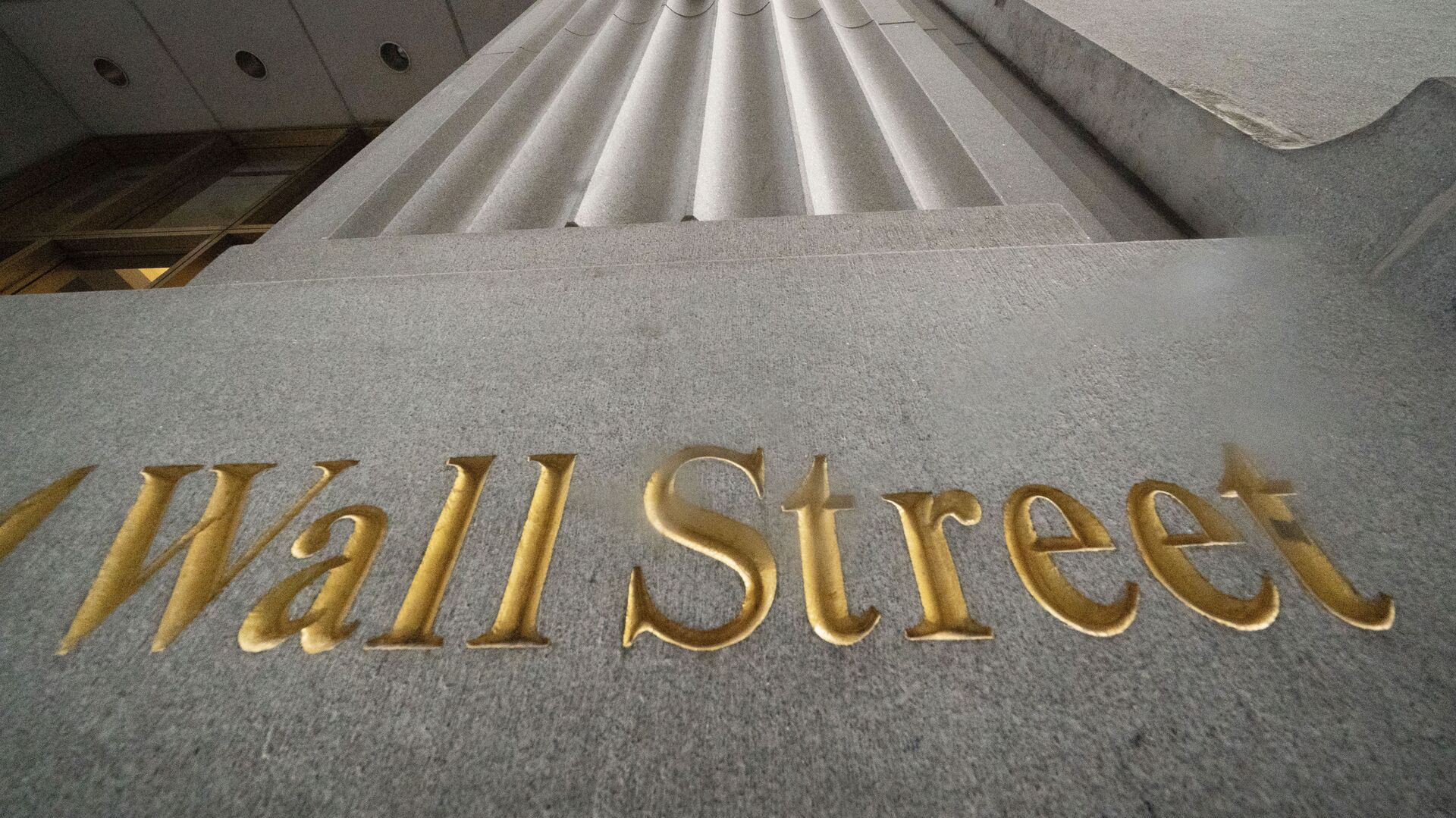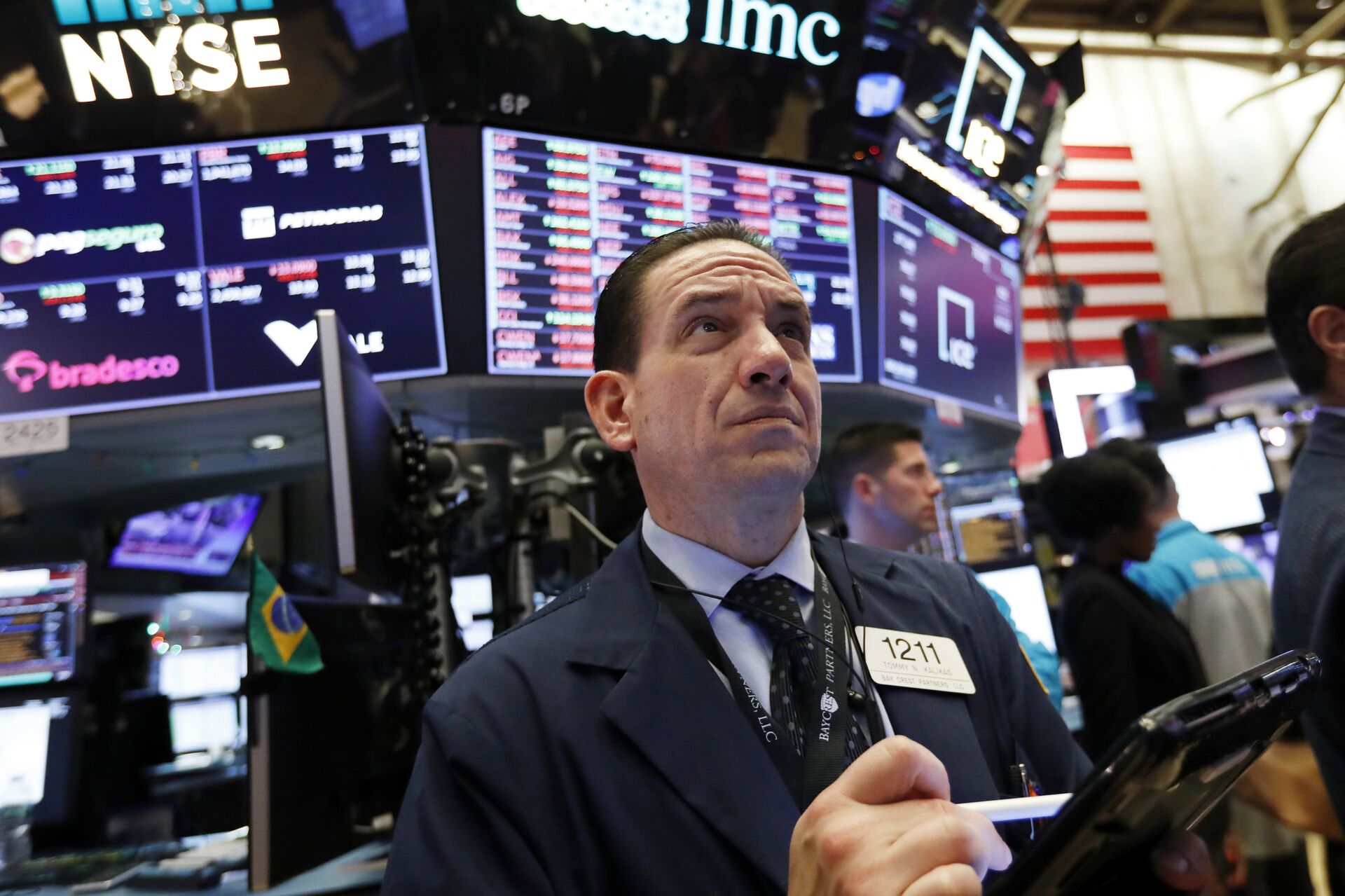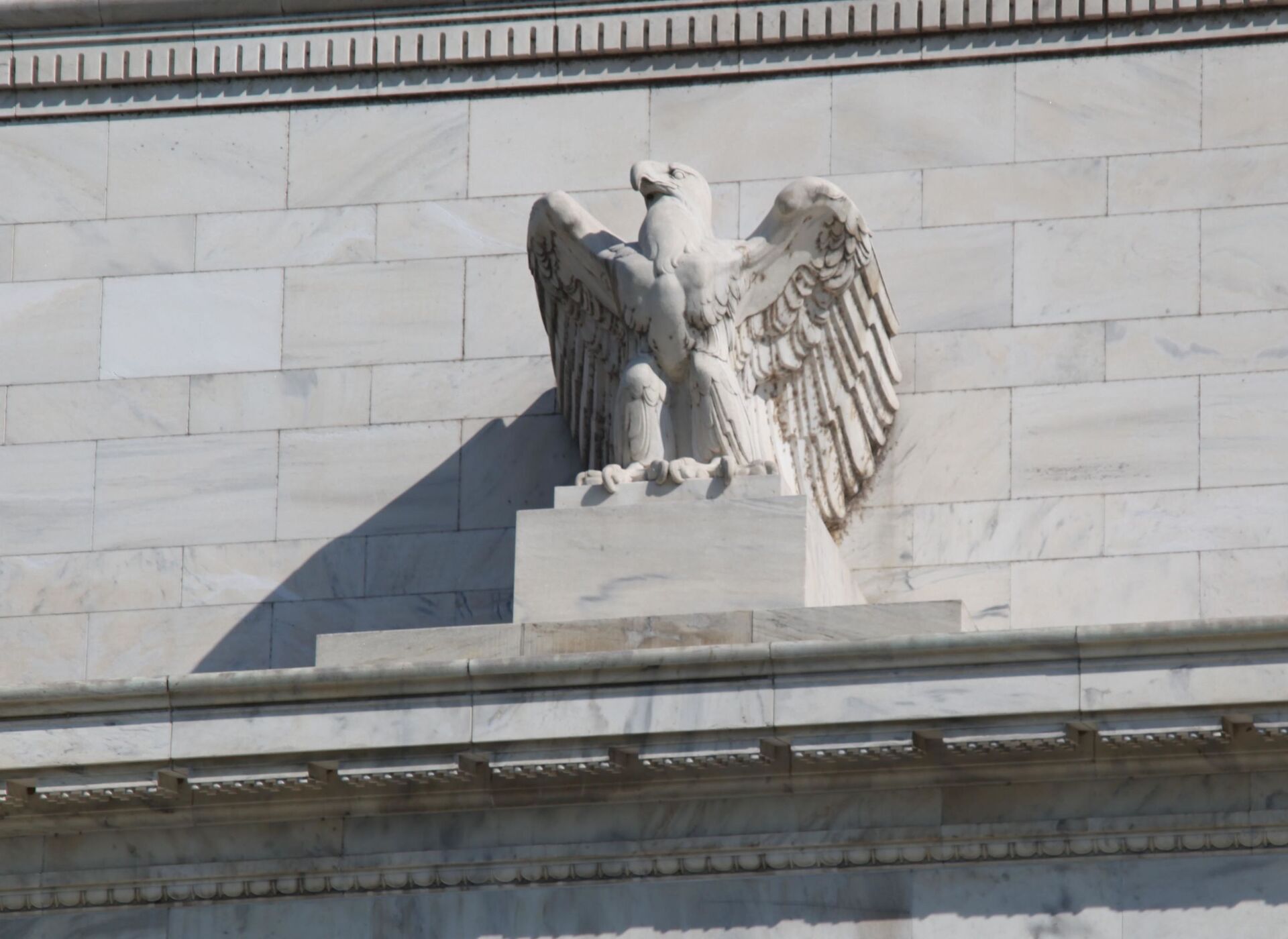US Economic Slump Unlikely, Stocks to See Healthy Correction in Long Term - Investor
19:44 GMT 02.10.2021 (Updated: 13:24 GMT 06.08.2022)

© AP Photo / Mark Lennihan
Subscribe
WASHINGTON (Sputnik) - The US economy is unlikely to go into a deep spiral decline, but a healthy correction in the stock market is expected in the long term, the director of the investment consulting firm Navigator Principal Investors, Kyle Shostak, told Sputnik.
Prominent investor Jeremy Grantham told CNBC on Tuesday that US stocks were in a "magnificent bubble", crazier than the 1929 one that preceded the Great Depression and the bubble in 2000. The investor projected sharp falls in the coming months.
Shostak explained that once the Federal Reserve starts implementing the gradual removal of monetary support and rate increases, the United States shall see a cool off period of several quarters.
"I don't expect the US economy to go into a deep spiraled decline although I believe that a healthy 10-20% correction off the current valuations in the equity market is a foreseeable reality, but in a much longer time horizon than many analysts are expecting", Shostak said.
It will be felt across different asset classes, including equities, bonds, alternative investments, and even real estate, the investor noted.
"There are several reasons for that, primarily due to the fact that so much money has been printed and poured into the economy since the start of the global pandemic", he explained. "The somewhat logical correction, however, is still going to be, in my opinion, a function of how optimistic the investors are going to assess the new Biden economic initiatives, especially on the infrastructure side".
Shostak went on to say that the overall market response so far remains supportive.
"Any correction like this, if it materialises, will have a healthy, cooling effect here in the US and would still be within a normal range", he added. "However, to the rest of the world, this may have [a] much more chilling effect, especially for emerging markets, Russia included".
In terms of the sectors that investors will continue to support with real money are infrastructure and construction companies that are going to be involved in the government-driven programme, the expert believes.

In this Dec. 6, 2018, file photo trader Tommy Kalikas works on the floor of the New York Stock Exchange.
© AP Photo / Richard Drew
"While the technology sector may see a decline, I believe that cyber-security technology space will be gaining new momentum (Biden just declared a cyber-security month)", he noted. "As an example of a new growing platform I'd mention Israel's CyTaka".
Moreover, Shostak expects a return to a new commodities cycle, hence renewed interest in oil and gas, especially considering the enormous shortages of energy in China at the moment. "Healthcare too will continue to be important. Another very promising sector will be fintech and microfinance, with a particular emphasis on emerging markets Latin America and the CIS/Russia region", he concluded.
Federal Reserve Bank of Philadelphia President Patrick Harker said on Friday that the Federal Reserve should start tapering its stimulus support for the US economy, as further asset purchases by the central bank will unlikely help businesses grow employment.
To make his point, Harker referred to the difficulty faced by businesses to hire individuals despite more than 300,000 Americans filing for weekly unemployment benefits. Officials say the coronavirus pandemic is the main reason for unfilled positions across the country as many people refuse on-site work in fear of their health.
The Federal Reserve has a dual mandate of ensuring "full employment" among Americans and keeping inflation tethered at 2% per year over the long run. The mandates are key for the central bank to roll back its monthly stimulus of $120 billion for the economy and raise interest rates for the first time since the coronavirus outbreak in March 2020.
Inflation, as measured by the central bank's preferred core Personal Consumption Expenditure Index, expanded by 3.6% in the year to August, growing at the same pace as in July and June.
Full employment is defined by the Federal Reserve as a monthly jobless rate of 4% or below. The unemployment rate was at 5.2% in August.



